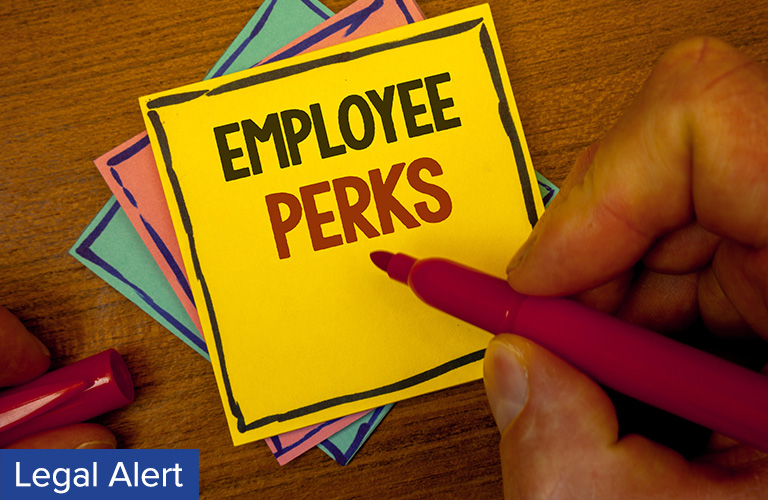
On December 12, 2019, the U.S. Department of Labor (“DOL”) announced a final rule clarifying and modifying the types of compensation included in an employee’s regular rate of pay for overtime purposes. This rule represents the first major change to the regulations governing regular rate of pay requirements under the Fair Labor Standards Act (“FLSA”) in over 50 years. The rule provides additional clarification for employers, and as U.S. Labor Secretary Eugene Scalia noted, “encourages employers to invest in the American workforce, to the benefit of their employees.”
The rule provides that employers may exclude the following perks and benefits when calculating an employee’s regular rate of pay for overtime purposes:
- parking benefits, wellness programs, onsite specialist treatment, gym access and fitness classes, employee discounts on retail goods and services, certain tuition benefits, and adoption assistance;
- certain sign-on bonuses and certain longevity bonuses;
- payments for unused paid leave, including paid sick leave or paid time off;
- payments of certain penalties required under state and local scheduling laws;
- office coffee and snacks provided to employees as gifts;
- contributions to benefit plans for accident, unemployment, legal services, or other events that could cause future financial hardship or expense; and
- reimbursements for cellphone plans, credentialing exam fees, organization membership dues, and travel even if not incurred “solely” for the employer’s benefit.
The rule also clarifies when a bonus is considered “discretionary,” and therefore excluded from an employee’s regular rate of pay, by providing fact-based examples. Finally, the Rule eliminates the FLSA’s requirement that “call-back” pay be “infrequent and sporadic” and modifies the “basic rate” calculation that is used as an alternative to the “regular rate” calculation in certain circumstances. The Rule will be published on December 16, 2019, and will go into effect on January 15, 2020.
If you have any questions regarding this decision or its impact, please contact your labor and employment counsel at Smith, Gambrell & Russell, LLP.

